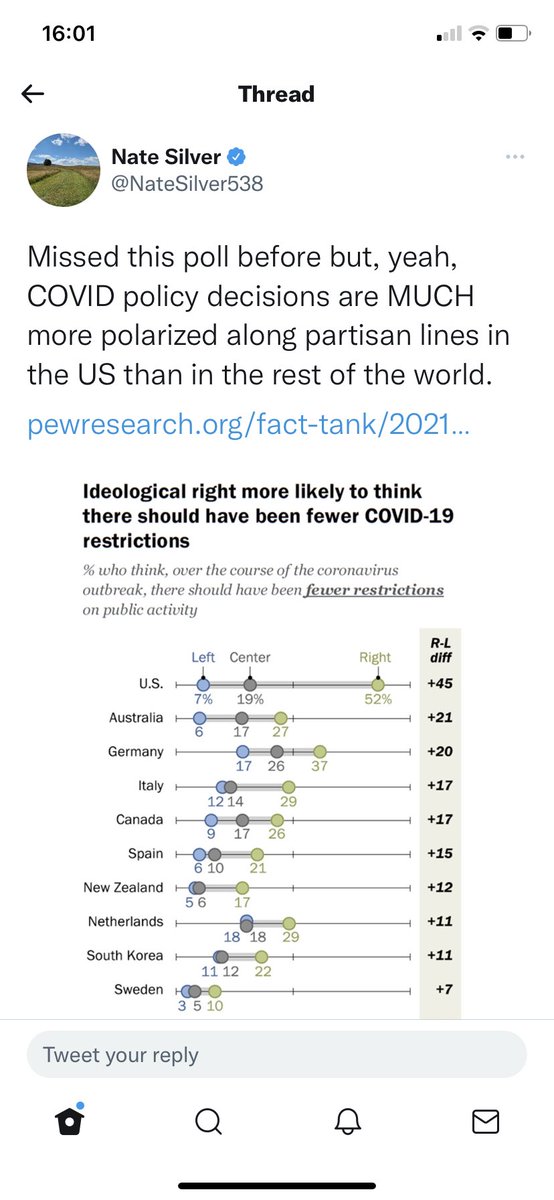
The #polarization narrative is the gift that keeps on distorting and obscuring. Left and Center in the U.S. are well in line with the rest of the world; American Right is an outlier. This isn’t polarization, it’s radicalization of the Right. 

Yes, the gap between Left and Right is bigger in the U.S. - but that’s almost entirely a function of the Right being more extreme than in other countries. And that’s not just true for COVID, but for pretty much all political, social, and cultural conflicts in America.
Calling that “polarization” is analytically inadequate - but it’s politically advantageous because it is guaranteed to garner a lot of support and approval from across the political spectrum, including from most of the mainstream media and the entire centrist punditry.
The idea of “polarization” is unobjectionable, while correctly diagnosing a radicalization of the Right is sure to provoke accusations of partisanship. In the American political discourse, bad analysis won’t necessarily get you in trouble, but being “partisan” definitely will.
A much longer reflection on the blind spots and pitfalls of #polarization as a master narrative for our era, based on my review of Ezra Klein’s book “Why We’re Polarized,” in this thread here:
https://twitter.com/tzimmer_history/status/1331700487104700424
• • •
Missing some Tweet in this thread? You can try to
force a refresh




